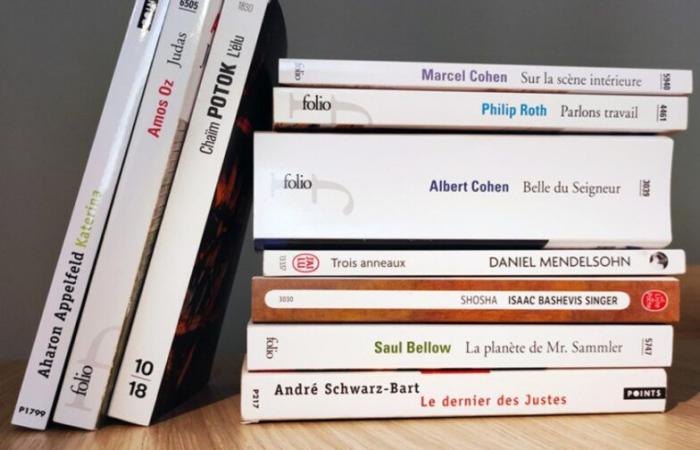Pope Francis has just published a text in July 2024 in which he encourages priests and Catholics to read novels – he cites Proust and Borges in particular. Seeing the head of the Catholic Church praise the frequentation of “non-Catholic” works represents a turning point in the history of the institution. What about the relations between literature and religion in Judaism? Is there a Jewish literature? Can we say that the books of Kafka, Elie Wiesel, Philip Roth or Georges Perec are “Jewish books”? We talk about it with Patrick Sultan, agrégé de lettres and doctor in comparative literature, co-founder of Sifriaténou (“Our library” in Hebrew). A website that aims to “to make Jewish existence known” to the general public and which lists nearly 300 works.
Jewish books?
“The notion of a Jewish book is a very debatable notion but we use it to designate something very particular.” Patrick Sultan recalls that in the Jewish tradition, there is first of all “one” book: the Torah. “For millennia, the Jewish people have lived on this book, have derived from this book – the Torah – their traditions, their customs, their institutions, their thoughts, their practices. Therefore the study of the Torah is a fundamental dimension constituting the Jewish people.”
From the 18th century, with the French Revolution, Jews were able to become citizens: the Jewish people began to “enter the nations”as Patrick Sultan says. “When he has acculturated, assimilated, integrated, [le peuple juif] made its existence dependent on books other than the Torah itself.” And the Jews “participated in the culture of the nations themselves.” In some respects we can speak of the secularization of literature.
Among Jewish writers, some are directly inspired by Jewish faith or tradition, like Chaim Potok. In Philip Roth, on the other hand, Jewish identity seems a priori more distant. It is in any case present, even “more problematic and complex”describes Patrick Sultan. According to him, there is a strong link in Philip Roth, not to say similarities, between Jewish identity and American identity.
Despite its relative disappearance in our societies, the Torah remains a Source of reference, a writing code too.
Secular and religious: the richness of a “dual belonging”
Novels by Jewish writers, such as those of Elie Wiesel, Georges Perec, Albert Cohen, Philip Roth Do they maintain even a distant link with religion? Can we speak of a secular Jewish literature? For Patrick Sultan, “even though the Jews integrated into the nations as a whole, they did not renounce the practice, reading, and reflection on the Torah”.
So the Hebrew Bible constitutes “despite its relative erasure in our societies, a Source of reference, a writing code too.” Of course, this cannot be done without “ambiguity” neither “dual belonging” but precisely, for Patrick Sultan this tension “is quite fertile, sometimes problematic but often very rich”.
In Judaism, it would be “a misunderstanding”believes Patrick Sultan, to separate religion from culture. “The Jewish religion itself is a culture, it is based on reflection, on books, on a process of culture and therefore it is inseparable.” Just as one cannot completely separate the written tradition from the oral tradition. “The Torah, what we call “the” book, is transmitted by a rigorously transmitted, codified text but also, in parallel and simultaneously, by an oral tradition, by speech. There is a double oral and written dimension of the Torah, of the Jewish tradition.”



